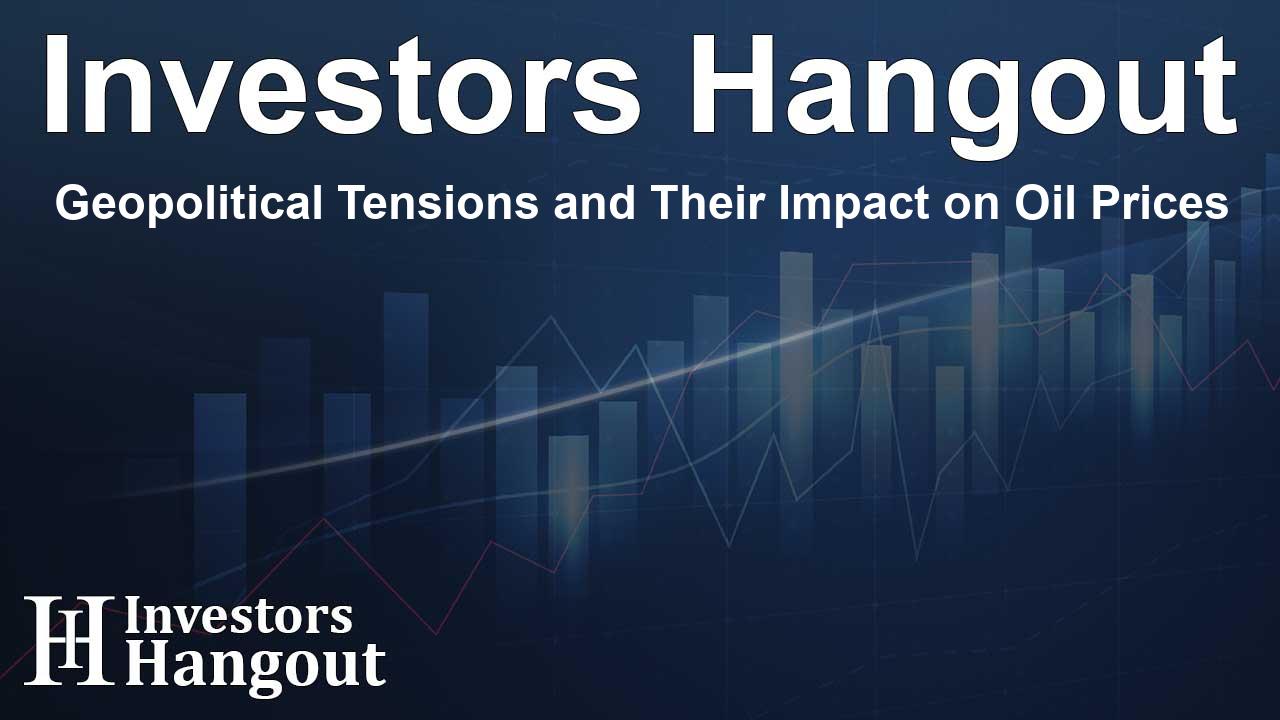Geopolitical Tensions and Their Impact on Oil Prices

Geopolitical Tensions and Oil Market Reactions
In recent times, energy markets have been increasingly influenced by geopolitical events. The possibility of military action by Israel targeting oil facilities in Iran raises concerns regarding oil price volatility, as outlined by industry analysts.
Expert Insights on Potential Disruptions
John Driscoll, chief strategist at JTD Energy Services, elaborates on the implications of such an attack. He notes that Iran's oil production hovers around 2.5 to 3 million barrels per day, yet its actual export numbers have been significantly depressed due to various sanctions imposed. A disruption of even half a million barrels per day could lead to a dramatic price spike, reflecting the delicate balance of supply and demand in global oil markets.
Driscoll's Perspective
Driscoll emphasizes the gravity of the situation, asserting that while Iran might not be the leading oil producer like Saudi Arabia or Kuwait, any disturbance to its operations could unsettle investors and traders alike. He comments, “While Iran may not be a critical player like the Saudis, this kind of event would undoubtedly rattle the nerves of oil markets.” This sentiment illustrates the potential for a heightened sense of urgency in market dynamics.
The Role of Market Volatility
Market volatility often serves as a double-edged sword for traders, who can capitalize on price swings during geopolitical crises. As tensions escalate, traders may find lucrative opportunities, navigating the uncertain waters ahead. Driscoll warns that investors should prepare for such fluctuations, which could manifest in unpredictable ways based on announcements or developments.
The Broader Implications of Military Action
This potential military action coincides with increasing tensions in the Middle East. Recently, discussions between government officials have pointed toward the U.S. possibly accompanying Israel in efforts to target Iran's oil infrastructure. While the U.S. President has voiced some reservations about escalatory actions, the mere possibility of such events has sparked immediate repercussions, notably causing a significant surge in oil prices.
New Sanctions and Market Stability
Heightened measures have also been undertaken, such as the U.S. imposing new sanctions targeting Iran's petroleum sector following aggressive actions against Israel. By attempting to suppress revenue sources that may fund regional instability, these sanctions reinforce the tenuous nature of the oil market. Each geopolitical shift contributes to a complex web of influences that determine pricing in this critical sector.
Current Market Performance
As the situation evolves, we see varied reactions across oil ETFs, indicating changing sentiments among investors. For instance, United States Oil Fund, LP (USO) showed a decrease while ProShares UltraShort Bloomberg Crude Oil (SCO) saw an uptick. Meanwhile, another fund, ProShares Ultra Bloomberg Crude Oil (UCO), experienced a notable decline as well. Monitoring these fluctuations can provide insights into broader market expectations moving forward.
Conclusion: Navigating the Future
The interplay between geopolitical developments and the oil markets will remain a focal point for analysts and investors alike. Understanding the potential repercussions of any military action could prove essential as these events unfold. The significant influence of a single nation, such as Iran, demonstrates how interconnected our global economy is and underscores the need for vigilance in tracking market movements.
Frequently Asked Questions
What might happen if Israel attacks Iranian oil facilities?
An Israeli attack on Iranian oil facilities could lead to a significant increase in global oil prices due to potential supply disruptions.
How does Iran's oil production impact global markets?
Iran produces about 2.5 to 3 million barrels of oil daily, but sanctions limit its exports. Disruptions could severely impact prices.
What role do traders play during geopolitical tensions?
Traders often seek opportunities in volatile markets, capitalizing on price fluctuations caused by geopolitical events.
Are sanctions effective in stabilizing oil markets?
Sanctions can impact revenue streams and oil production, aiming to affect a nation's ability to engage in destabilizing activities.
How are oil ETFs reacting to current market changes?
Oil ETFs are displaying mixed activities, reflecting varying investor sentiment regarding the near-term effects of geopolitical tensions.
About Investors Hangout
Investors Hangout is a leading online stock forum for financial discussion and learning, offering a wide range of free tools and resources. It draws in traders of all levels, who exchange market knowledge, investigate trading tactics, and keep an eye on industry developments in real time. Featuring financial articles, stock message boards, quotes, charts, company profiles, and live news updates. Through cooperative learning and a wealth of informational resources, it helps users from novices creating their first portfolios to experts honing their techniques. Join Investors Hangout today: https://investorshangout.com/
Disclaimer: The content of this article is solely for general informational purposes only; it does not represent legal, financial, or investment advice. Investors Hangout does not offer financial advice; the author is not a licensed financial advisor. Consult a qualified advisor before making any financial or investment decisions based on this article. The author's interpretation of publicly available data shapes the opinions presented here; as a result, they should not be taken as advice to purchase, sell, or hold any securities mentioned or any other investments. The author does not guarantee the accuracy, completeness, or timeliness of any material, providing it "as is." Information and market conditions may change; past performance is not indicative of future outcomes. If any of the material offered here is inaccurate, please contact us for corrections.